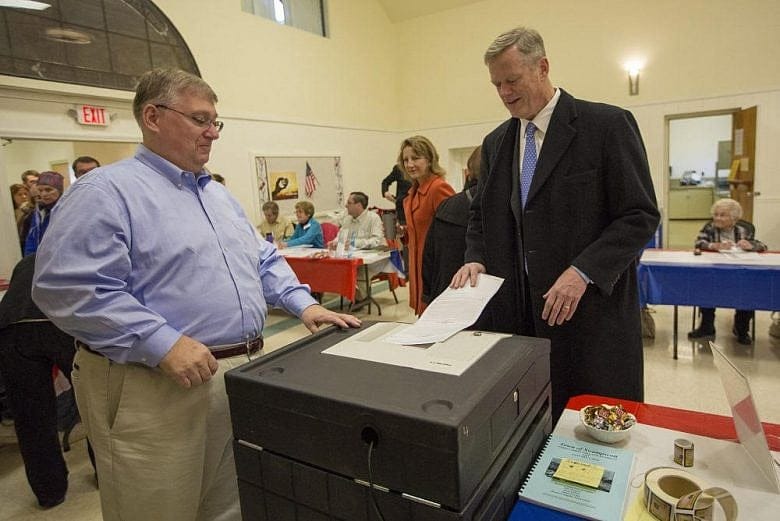Baker’s precarious popularity

If Massachusetts Gov. Charlie Baker had to defend his incumbency in the cataclysmic election last week he likely would have lost. Baker can only hope that the political landscape for his reelection in 2018 is like 2014, not 2016, to ensure victory. In Massachusetts, being moderate and popular can be politically precarious.
In a post-election post-mortem, Boston Herald columnist Howie Carr concluded that Baker was among the night's biggest "losers." Carr, an ardent Trump supporter, noted that Baker supported the defeated Question 2 ballot measure (which sought expansion of Charter Schools) and opposed the successful Question 4 (which sought legalization of recreational marijuana). Baker never supported President-elect Trump.

